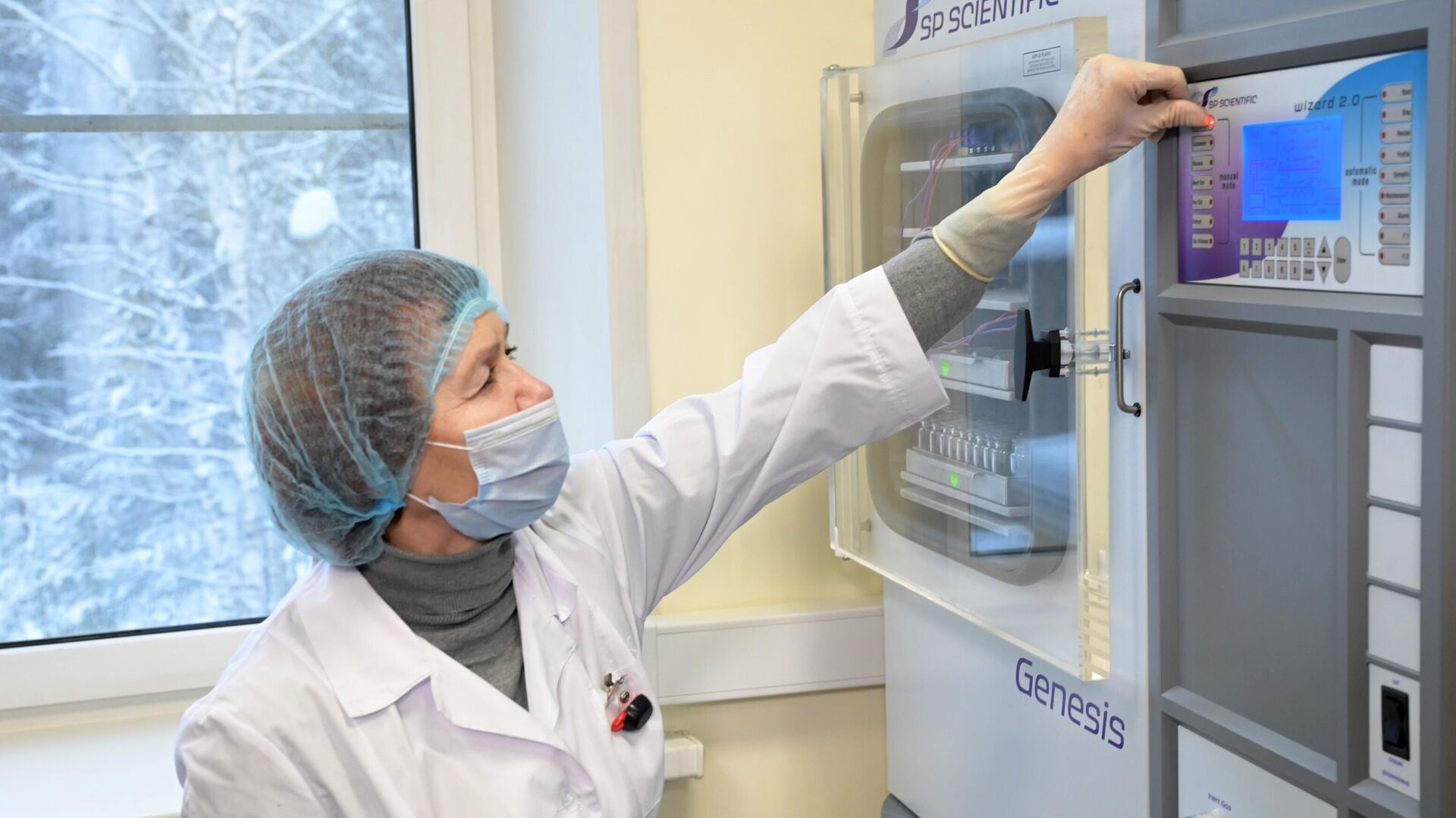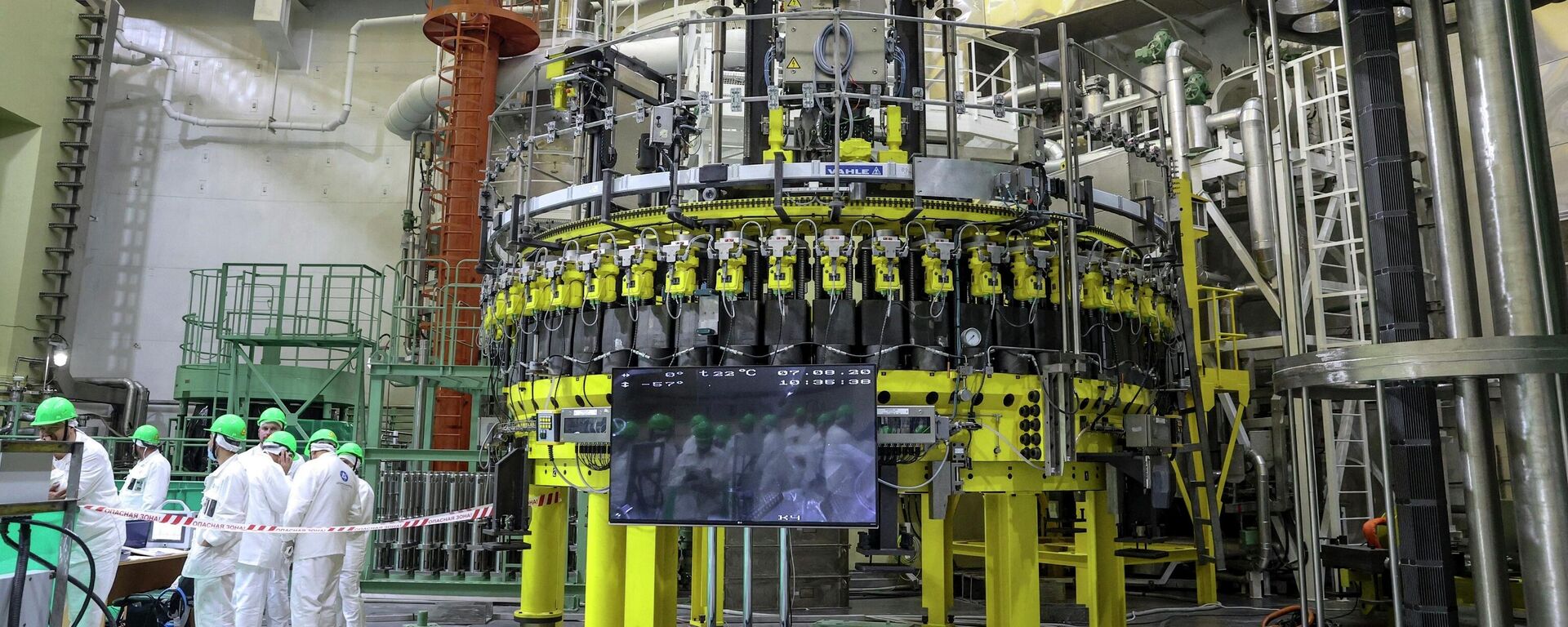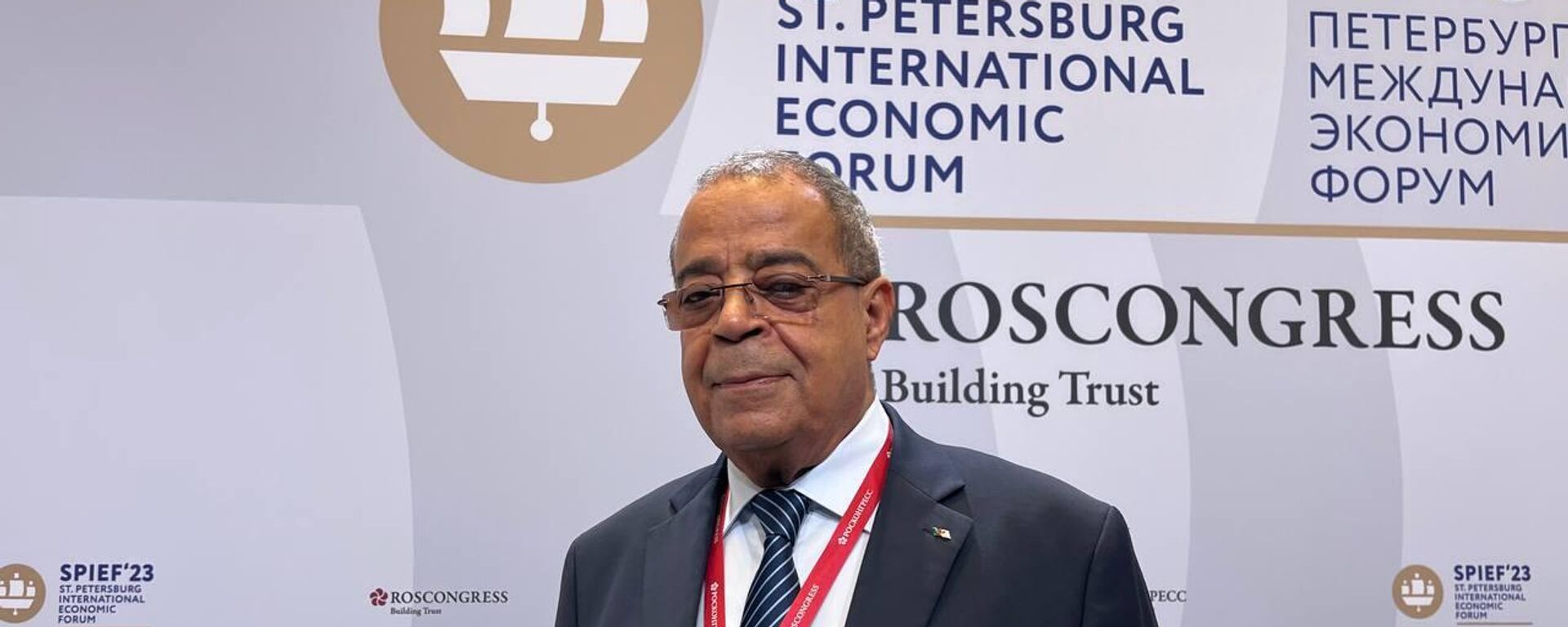https://en.sputniknews.africa/20230725/fighting-cancer-russia--africa-should-develop-joint-projects-in-nuclear-medicine-expert-says-1060751255.html
Russia, Africa Should Join Forces to Fight Cancer With Nuclear Medicine, Expert Says
Russia, Africa Should Join Forces to Fight Cancer With Nuclear Medicine, Expert Says
Sputnik Africa
Last week, Russia's state nuclear corporation, Rosatom, announced its intention to help African nations on their way to technological sovereignty. In... 25.07.2023, Sputnik Africa
2023-07-25T10:47+0200
2023-07-25T10:47+0200
2023-07-25T11:41+0200
opinion
brics
medicine
cooperation
russia-africa cooperation
russia-africa summit
healthcare
health
southern africa
south africa
https://cdn1.img.sputniknews.africa/img/07e7/07/19/1060752063_0:151:3106:1898_1920x0_80_0_0_a2d49bca91e9ae97f5af1da05bd9817e.jpg
Given the growing need for nuclear medicine in Africa, Russia could help the continent to harness this technology by proposing and implementing joint projects in this sphere, and in particular by training specialists, said Dr Musawenkosi Eslom Mdluli, Director at Khuphuka Kings International (Pty) Ltd. and Khuphuka Medicals & General Trade Ltd., South Africa, in an interview with Sputnik Africa.According to the expert, the main prospects for Russia-Africa cooperation in the field of nuclear medicine lie in a mutually beneficial partnership. He elaborated that the countries could develop joint projects in personnel training, given that there are very few specialists in nuclear medicine in South Africa and across the continent in general. He explained that the development of nuclear medicine in Africa is an issue of particular importance. Both on the continent and globally, the number of cancer patients is growing, he noted, adding that nuclear medicine is needed primarily for the treatment and diagnosis of cancer.Mdluli, who is also a representative of the BRICS International Alliance for Strategic Projects in South Africa, emphasized the need to develop these technologies in Africa, so that those who need nuclear medicine "don't have to travel abroad and pay for this treatment there." According to Mdluli, South Africa has great potential for the development of nuclear medicine technologies. He underlined that South Africa should be the first to work with Russia in this area, since the country is part of the BRICS group and "the development of South African medicine allows it to develop such a partnership."Reiterating that cancer is a serious health threat to many nations across the globe, the doctor underscored that today nuclear medicine is not dangerous because with the use of modern technologies, patients don't receive an increased dose of radiation. He noted that these are safe methods of research and treatment.Earlier, Rosatom's senior executive Kirill Komarov confirmed that the company is ready to provide BRICS countries with new high-tech radiopharmaceuticals for cancer treatment.
https://en.sputniknews.africa/20230723/technological-sovereignty-russias-rosatom-proposes-plans-for-civil-nuclear-power-in-africa-1060706012.html
https://en.sputniknews.africa/20230619/algerian-minister-outlines-importance-of-russian-pharmaceutical-cooperation-1060029941.html
southern africa
south africa
Sputnik Africa
feedback@sputniknews.com
+74956456601
MIA „Rossiya Segodnya“
2023
News
en_EN
Sputnik Africa
feedback@sputniknews.com
+74956456601
MIA „Rossiya Segodnya“
Sputnik Africa
feedback@sputniknews.com
+74956456601
MIA „Rossiya Segodnya“
brics, medicine, cooperation, russia-africa cooperation, russia-africa summit, healthcare, health, southern africa, south africa, africa insight
brics, medicine, cooperation, russia-africa cooperation, russia-africa summit, healthcare, health, southern africa, south africa, africa insight
Russia, Africa Should Join Forces to Fight Cancer With Nuclear Medicine, Expert Says
10:47 25.07.2023 (Updated: 11:41 25.07.2023) Last week, Russia's state nuclear corporation, Rosatom, announced its intention to help African nations on their way to technological sovereignty. In particular, the corporation proposed projects ranging from training specialists to establishing companies in Africa and involving African partners in technological networks in Russia.
Given the growing need for nuclear medicine in Africa, Russia could help the continent to harness this technology by proposing and implementing joint projects in this sphere, and in particular by training specialists, said Dr Musawenkosi Eslom Mdluli, Director at Khuphuka Kings International (Pty) Ltd. and Khuphuka Medicals & General Trade Ltd., South Africa, in an interview with Sputnik Africa.
According to the expert, the main prospects for Russia-Africa cooperation in the
field of nuclear medicine lie in a mutually beneficial partnership. He elaborated that the countries could develop joint projects in personnel training, given that there are very few specialists in nuclear medicine in South Africa and across the continent in general.
"This could be a partnership with both the Russian state and Russian private companies to develop these technologies in Africa. The first and most important step, I think, is the training of specialists," he said.
He explained that the development of nuclear
medicine in Africa is an issue of particular importance. Both on the continent and globally, the number of cancer patients is growing, he noted, adding that nuclear medicine is needed primarily for the treatment and diagnosis of cancer.
Mdluli, who is also a representative of the BRICS International Alliance for Strategic Projects in South Africa, emphasized the need to develop these technologies in Africa, so that those who need nuclear medicine "don't have to travel abroad and pay for this treatment there."
"If Africa had its own infrastructure for the use of nuclear medicine, it would be positive for the development of the continent. Many associations already rank cancer as the first or second leading cause of death in Africa," said the doctor.
According to Mdluli, South Africa has great potential for the development of nuclear medicine
technologies. He underlined that South Africa should be the first to work with Russia in this area, since the country is part of the BRICS group and "the development of South African medicine allows it to develop such a partnership."
"Many people refer to South Africa as the gateway to Africa. Therefore, I believe that if joint projects with Russia are successfully implemented in South Africa, this experience can quickly be extended to other African countries," Mdluli stated.
Reiterating that cancer is a serious health threat to many nations across the globe, the doctor underscored that today nuclear medicine is not dangerous because with the use of modern technologies, patients don't receive an increased dose of radiation. He noted that these are safe methods of research and treatment.
Earlier, Rosatom's senior executive Kirill Komarov
confirmed that the company is ready to provide BRICS countries with new high-tech radiopharmaceuticals for cancer treatment.



